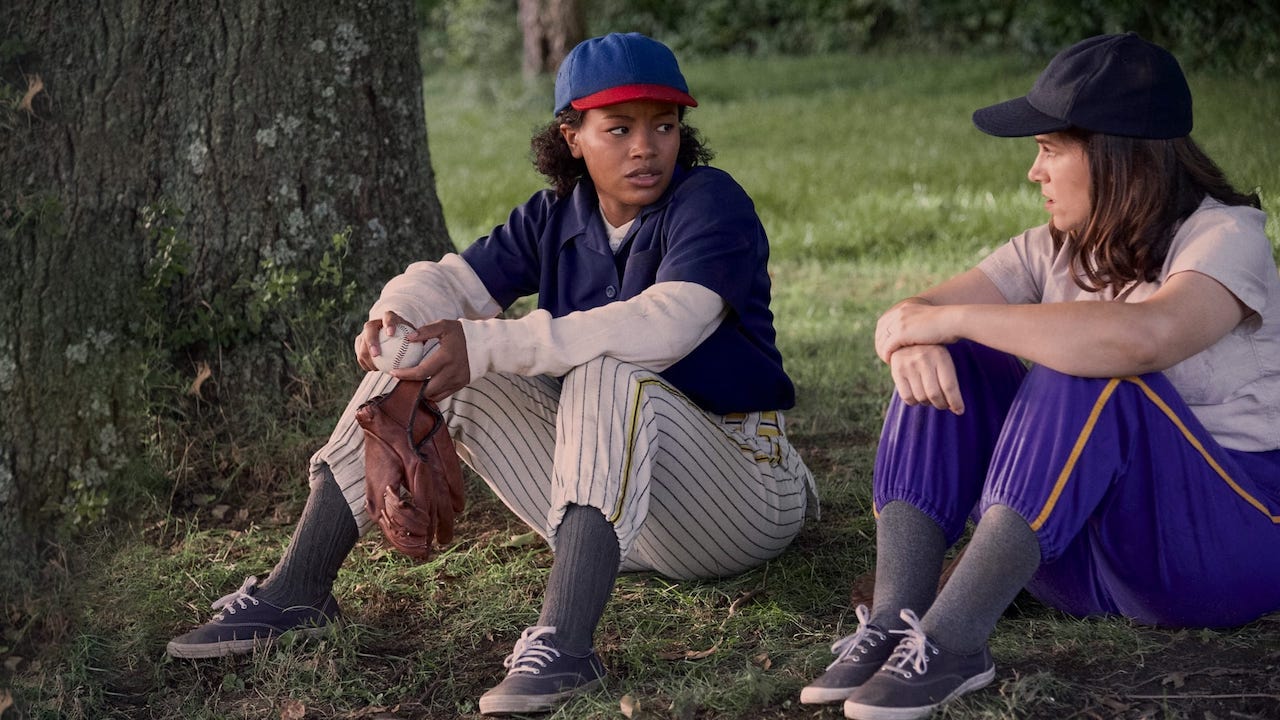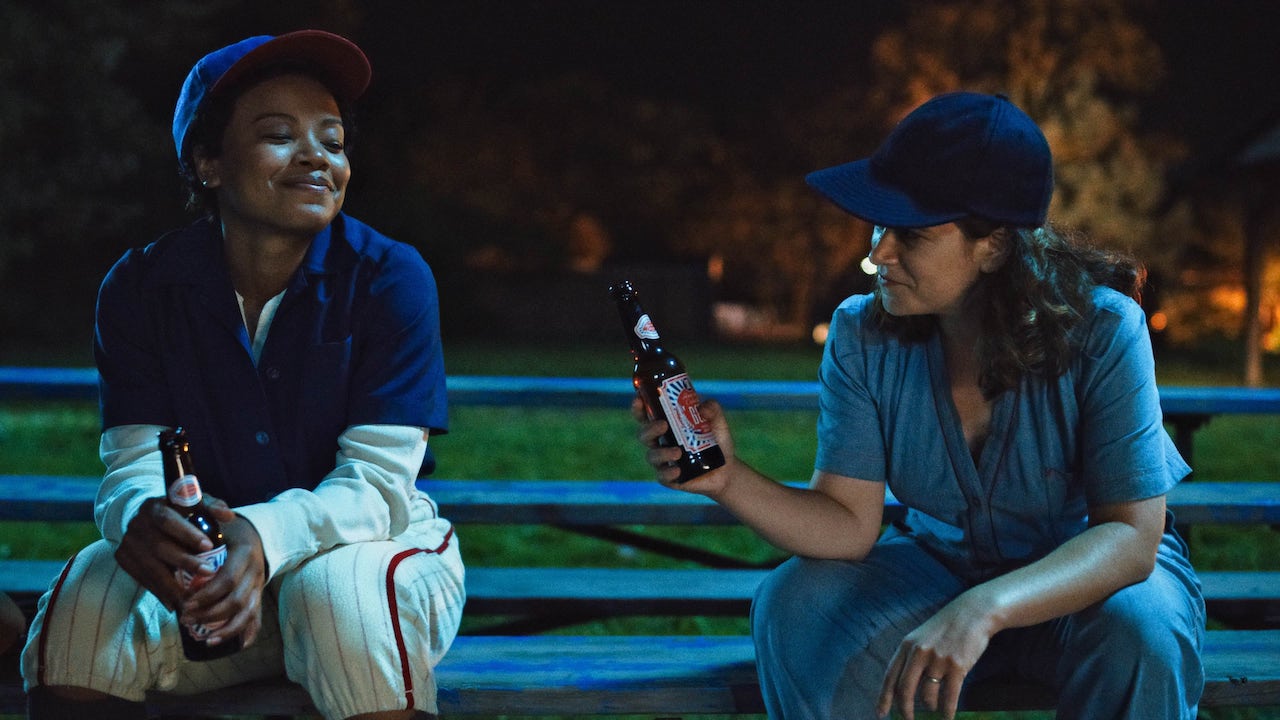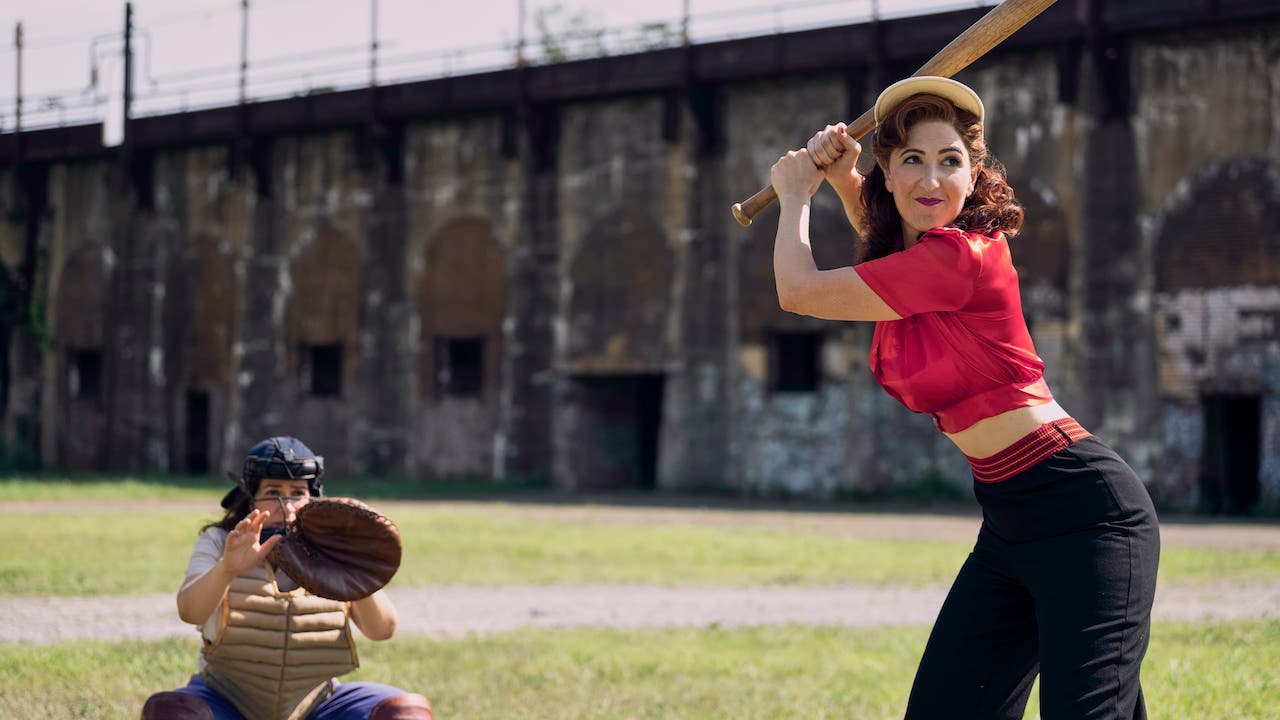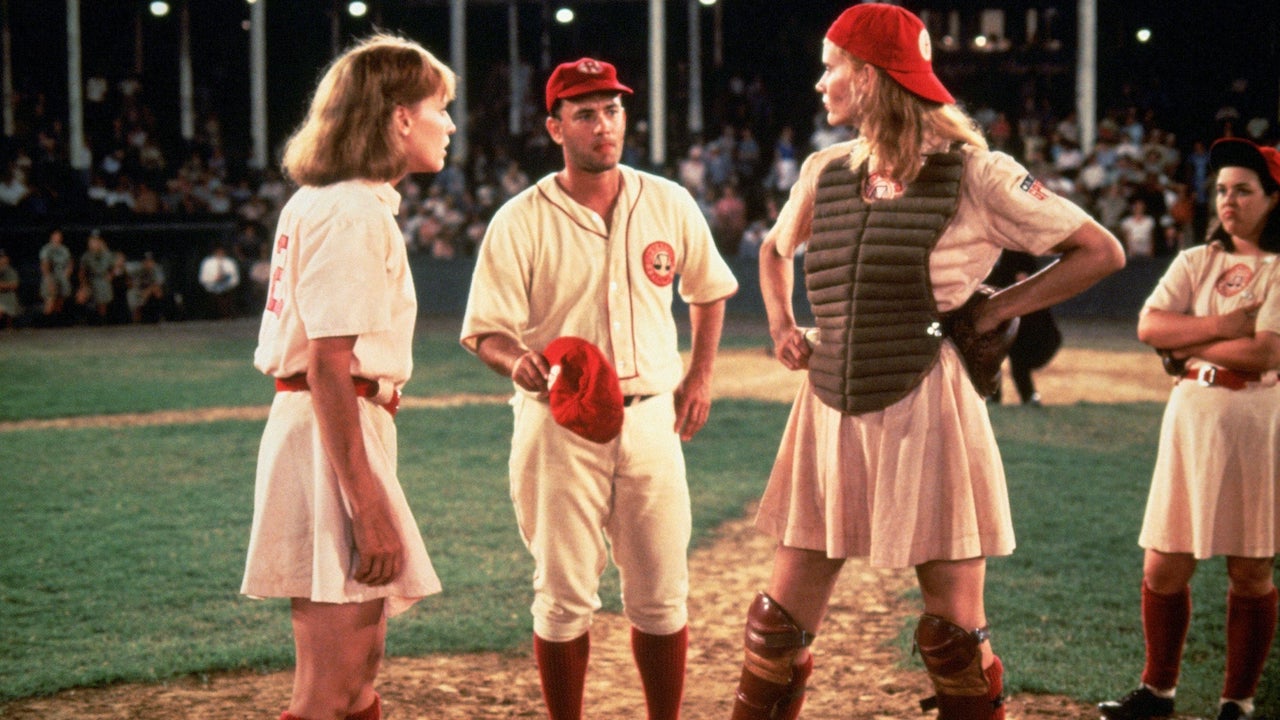The new A League of Their Own highlights glaring omissions from the original – but it’s not all home runs

Celebrating its 30th anniversary this year, nostalgic baseball comedy A League of Their Own gets reinvented on Prime Video in the form of a very modern, more dramatic series. Eliza Janssen wishes the new show had just let its ladies play ball.
Prime Video recently premiered its episodic remake of A League of Their Own, the 1992 Penny Marshall sports comedy that fictionalised the inspiring true story of the All-American Girls Professional Baseball League. It’s a deeply 2022 update, creators Abbi Jacobson (Broad City) and Will Graham having interviewed real surviving players to include untold stories from the wartime league’s queer and Black players.
As much as I enjoyed rewatching Marshall’s baseball picture, it’s impossible to ignore those omissions now, in a story that otherwise has a clear-eyed and realistic perspective on old-timey discrimination. You’re telling me none of these female athletes were into their teammates?! Especially the very queer-coded butch Doris, played by IRL lesbian Rosie O’Donnell?
Fans will remember the film’s sole, sad hint of acknowledging Black female ballers who couldn’t have joined the then-unintegrated league. It’s when uncredited softball champ DeLisa Chinn-Tyler swiftly chucks an errant ball back to Geena Davis’ protagonist, shocking our white heroes as Hans Zimmer’s treacly score conjures the obvious sentiment of progress being quietly made. The scene goes for 15 seconds.
In Jacobson and Graham’s lengthier series, of course, there’s plenty more room to introduce us to Chanté Adams’ Max, a Black baseball obsessive inspired by real-life players Toni Stone, Mamie Johnson, and Connie Morgan. The show takes on the task of depicting Max’s battle to simply be considered for the AAGPBL, in parallel to the comparative ease with which her white counterparts are accepted as Rockford Peaches.
Too Black to even try out for the new women’s league and too woman to join the newly integrated men’s team in her hometown, Max’s storyline is kept frustratingly yet accurately separate from that of the other characters. It forces us to witness the extra hours and emotional pain involved in bringing together the intersectional feminist dream team viewers will hope to enjoy in the finale.

Meanwhile in the dugout, the focus is on Jacobson’s Idaho transplant Carson, and her complex flirtation with D’Arcy Carden’s glamour girl Greta. Rather than directly recasting the invented Geena Davis and Lori Petty characters in the original film, the show has pulled from those archetypes in service of fresher, gayer romantic storylines. What if Davis’ “Queen of Diamonds” Dottie Hinson wasn’t so excited for her soldier husband to come home? What if Madonna’s tough girl taxi dancer “All The Way” Mae convinced her to write him a break-up letter explaining that she’s into girls?
It’s something that must have been on the mind of many a queer kid watching the close-knit women of the 1992 movie, but there’s something sadly flat and disingenuous about observing those inclusive fantasies come true on the small screen. Especially when the characters speak in such distinctly modern, pandering vernacular, dotted with “like” and “literally” and countless Marvel-esque sarcastic exchanges with one character returning another’s insult with a delayed “…thanks.” Seriously, they use that joke about every five minutes.

As with Dottie, Kit, Doris, and Betty Spaghetti, the series builds pathos from placing its characters into a competitive crucible of performative, normative womanhood, and punishing those who can’t meet its impossible standards. Multiple Marla Hooch-esque characters are almost dropped from the team for their perceived masculinity, and it’s entirely believable that a “passing” character like Greta would desperately warn her makeover-averse teammates that their beauty and etiquette lessons are “to make sure we don’t look like a bunch of queers”. This 2022 retelling would never play off the league’s sexist marketing ploys (“Catch a foul, get a kiss!”) and misogynistic coach (Tom Hanks, who yells at the gals to “stop thinking with [their] tits”) as sardonic comic relief.
Upon release, Marshall’s A League of Their Own was in fact mostly appreciated as light entertainment first and foremost, critics giving it a condescending pat on the head. It’s certainly funnier than the show, with a tight if formulaic script full of zingers (“let’s make like a bread truck and haul buns, ladies”) and airy direction propelling both the rich period setting and down-to-earth comedy of the characters.
Marshall gave us a rosy, sepia-inspired colour palette perfect for the Peaches’ story, and parochial shots of big sky, fields, and farmland, inspiring a dual sense of escapism and nostalgia far quicker than the show’s laboured tell-don’t-show approach to character development.

By the middle of A League Of Their Own’s first season, I didn’t care about any of these more fleshed-out characters—but the film managed to make me love its cast of players within a few short, funny introductions. And the thing is, in its own, early 90s-way, A League of Their Own was profoundly intersectional: we see an illiterate woman needing her teammate’s help to read her own name on the bulletin board of accepted players, and meet other athletes raising children, grieving their fallen soldier husbands, hinting at the trauma of the era’s shadowy sex work.
The main difference lies in how Marshall’s movie sat back and let us enjoy the sheer feminine excellence of women loving their sport and being really, really good at it. A deceptively simple screenwriting rule says that audiences love to simply see characters being exceedingly good at their job or passions—it’s why we excuse the anti-heroics of characters like Don Draper, Walter White, and Tony Soprano (the fact that they’re all somewhat awful dudes is not lost on me).
The below sequence, of soon-to-be-teammates relishing the pure joy of play, surprising themselves and one another to the sound of swinging big-band music, says so much more about the characters than any of the lengthy indoor exposition scenes of the show.
The film focused its dramatic storytelling on a potent sisterhood rivalry, and the redemptive arc of Hanks’ boozy failure Jimmy Dugan (doing his best Walter Matthau in an unusually cynical, tobaccey-spittin’ role). There was egregious sexism, sure, but it was nothing compared to the love and community the Peaches found in one another, made even more potent by their awareness that, Cinderella-like, they might be turned back into housewives as soon as the country’s male athletes are back from service.
The new A League Of Their Own finds its purpose in making real historical tales of rising from oppression more explicit, and by rightfully giving underrepresented minority players of the AAGBPL a voice. But, overwritten and drawn-out, it never manages a nuanced moment like the scene in which Doris realises her inner power while on the Peaches’ tour bus. Looking around at her wildly different peers, she tries to explain, with whatever archaic language she has, that the community has made her feel valid in her womanhood. “There’s a lot of us”, she understands aloud, before tearing up a picture of the jerk boyfriend who never made her feel good enough, adding: “I think we’re all alright.”
Okay, so maybe there’s some crying in baseball. As long as we get to see bold, funny women actually playing it.

















